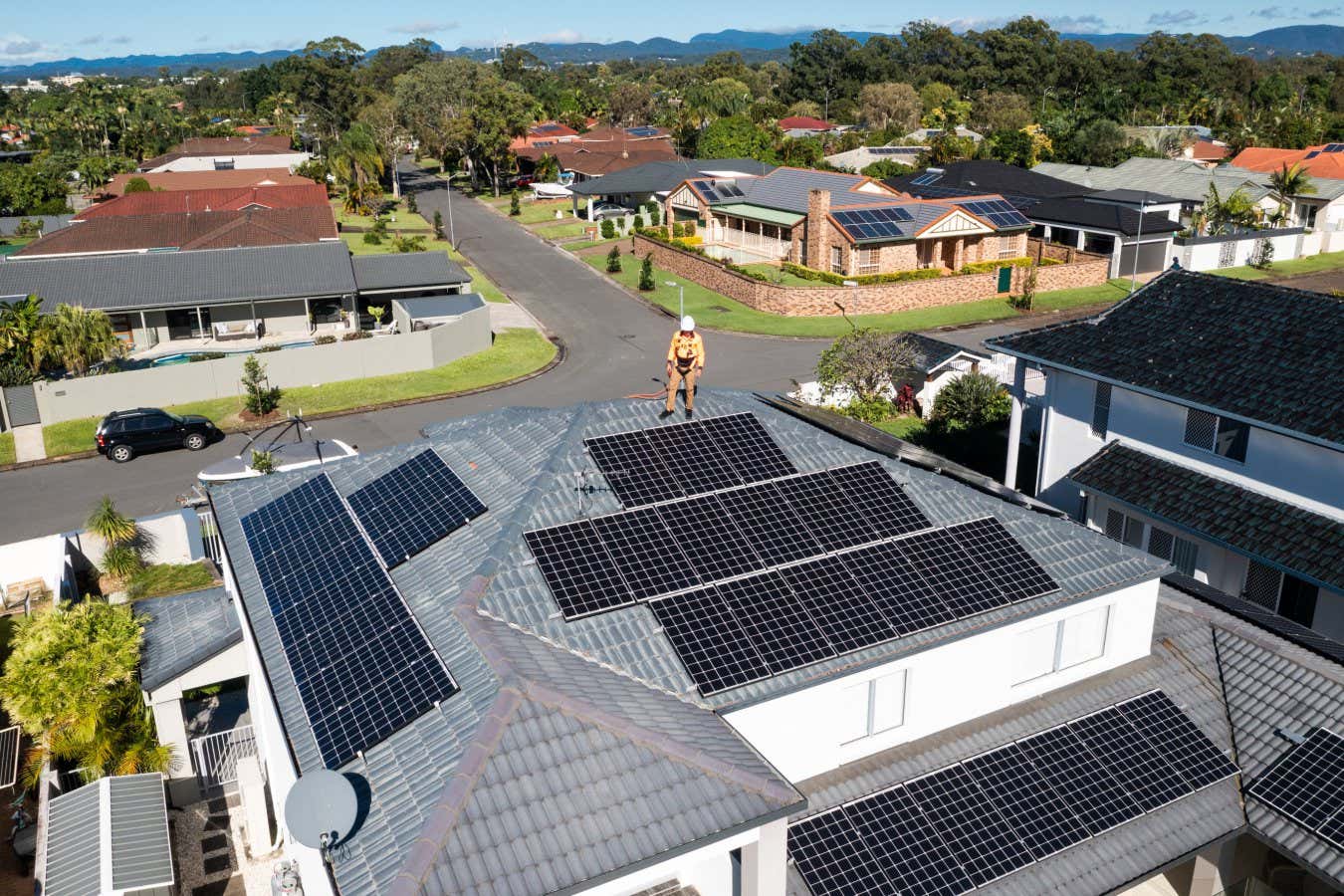The growth of domestic solar installations opens the possibility of hackers targeting their smart inverter devices as a way to cause widespread power-system failures
By James Woodford
4 July 2025
A third of homes in Australia now have rooftop solar panels
zstockphotos/iStockphoto/Getty Images
Power grids around the world are increasingly under threat from cyberattacks because of the vulnerabilities of home solar installations.
As distributed energy resources like rooftop solar become more prevalent, grids are increasingly reliant on smart inverters, which manage connections to local power networks.
Read more
Cybersecurity experts fear Elon Musk's DOGE may enable quantum hackers
“While these technologies offer many benefits, they also introduce new operational and cybersecurity challenges,” says Sid Chau at CSIRO, an Australian government research agency.
Smart inverters convert the direct current produced by solar panels into the alternating current needed to power appliances. They also optimise energy storage and enable remote monitoring via the internet.
These web connections mean they pose a threat not just to home solar systems, but also to the wider power-generation network, Chau and his colleagues warn.
